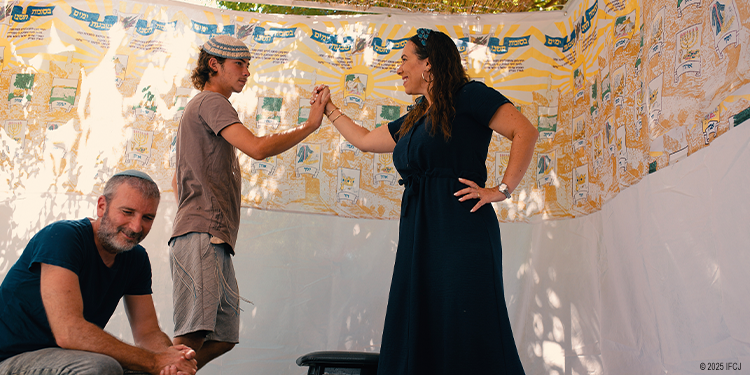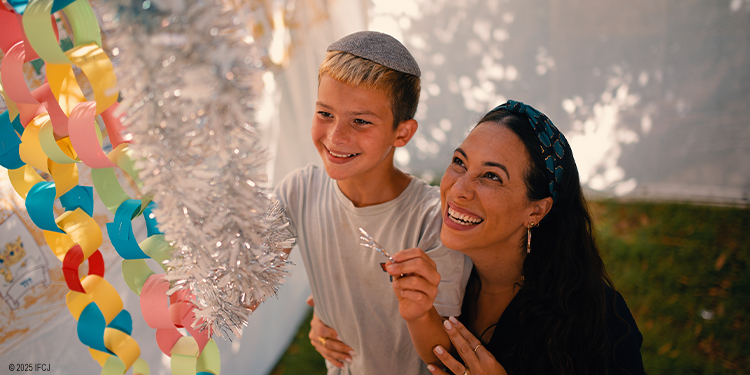Sukkah: Living in Joyનમૂનો


Think About It
- The sukkah represents God’s shelter. How has God served as your “shelter” in difficult times? In what ways have you discerned His providence at key junctures in your life?
- In what ways do your current lifestyle and daily schedule allow for quality time to spend with God in prayer, study, or simple silence? How can we as a society encourage more space and time for spiritual pursuits?
- If you were to make a list, what are the things that you truly need and which are really luxuries? Sometimes we confuse the two, but when we can tell the difference, we can relax and enjoy our lives more without getting caught up in things that don’t really matter.
- Think of a time when you have experienced more freedom and joy in your life. For example, maybe you took a trip and lived out of one room with just one suitcase of belongings. Or perhaps you had this experience as a young adult, in college or just starting life on your own. How does that experience differ from your current one? How can you incorporate elements of that lifestyle now?
- What brings you joy in life? Think back to the most joyful moments in your life. What might you learn from those times about what can make you happy now?
- What are the greatest obstacles to having a joy-filled life right now? What changes can you make so that you might enjoy your life more? What changes could you make in your attitude or perspective that might help you to focus on the things which truly bring joy?

Apply It
- Edit your life. Go through the items in your home and consider donating or giving away items that you no longer use or need. Go through your schedule and eliminate any activities that don't serve your purpose or intentions.
- Make peace. In the spirit of unity, choose peace in your relationships. We are all happier and better off when we have healthy relationships with the people around us. When possible, choose reconciliation.
- Make time for the important things. Make sure your daily and weekly schedules include time set aside for God, family, friends, and acts of kindness. Try establishing daily or weekly rituals that automatically integrate the things you care about most into your busy lives.
- Spend some time in nature. Just as sitting in a sukkah looking up at the stars makes us feel closer to God, so does going out into nature. Away from distractions and surrounded by the glory of God’s creations, we can better connect to our Creator.
- Enjoy less, more often. One of the lessons of Sukkot is that we don’t need very much to be happy and that too much stuff can actually take away from our happiness. We do, however, need to make a concerted effort to notice, appreciate, and enjoy the blessings we do have.
Learn more about the Festival of Tabernacles by visiting our Learn Center.
શાસ્ત્ર
About this Plan

Mere hours after Yom Kippur comes to an end, sounds of building and banging can be heard in Jewish communities around the world as Jews begin to build their temporary shelter known as a sukkah. Five days later, we will inhabit our sukkah for an entire week as we celebrate the biblical holiday of Sukkot, the Feast of Tabernacles. In this reading plan, we will learn how the sukkah connects the inspiration and introspection of the High Holy Days with our everyday living.
More









